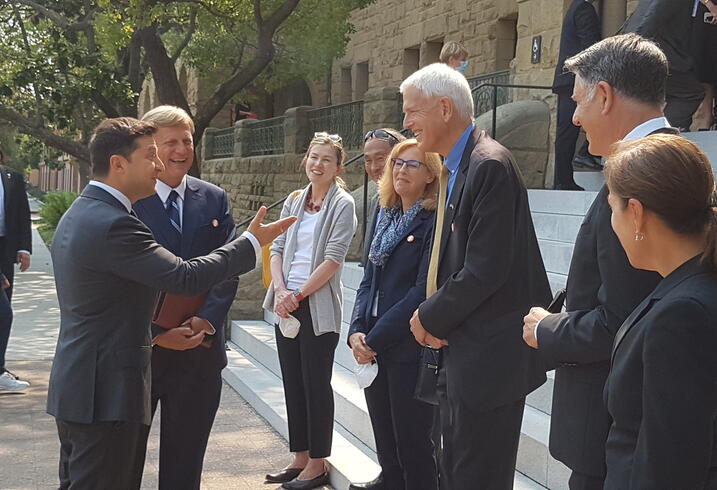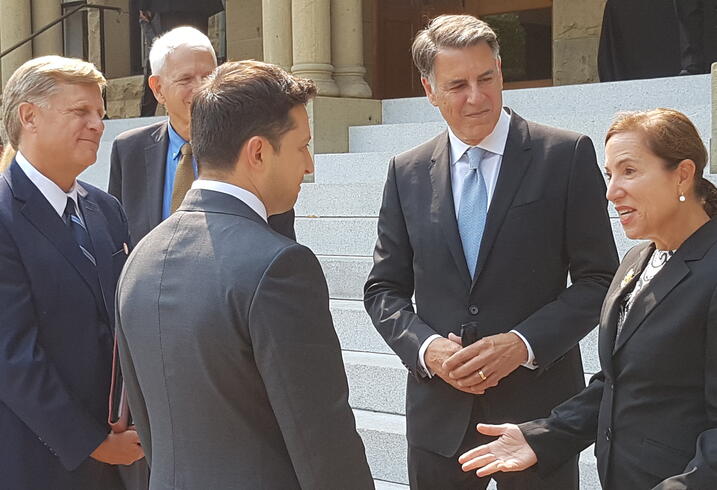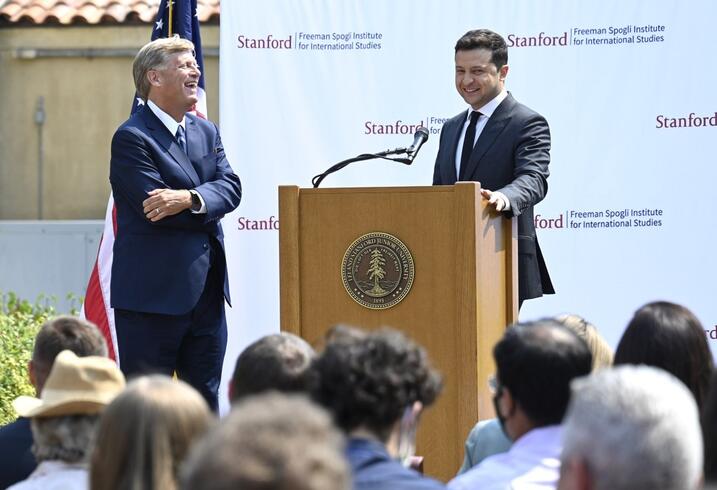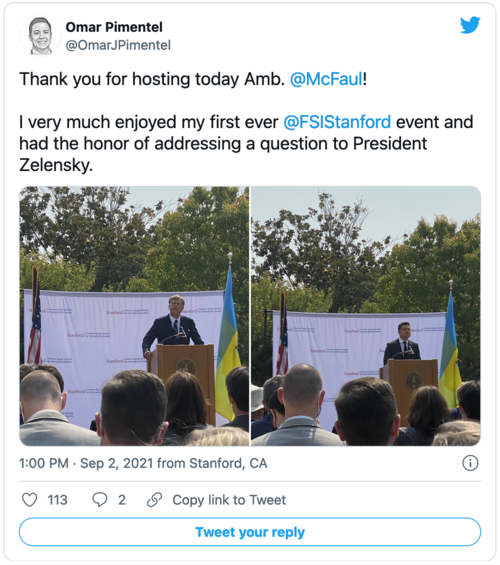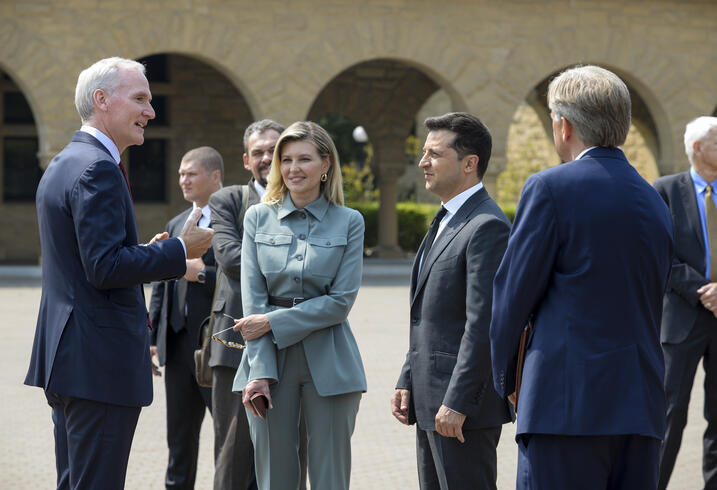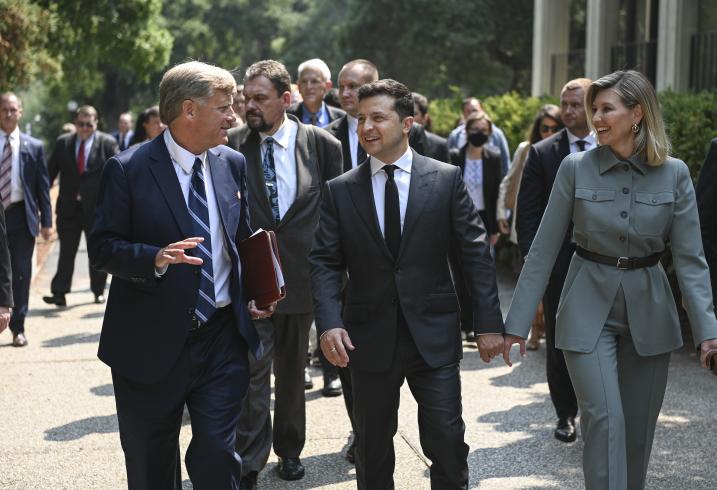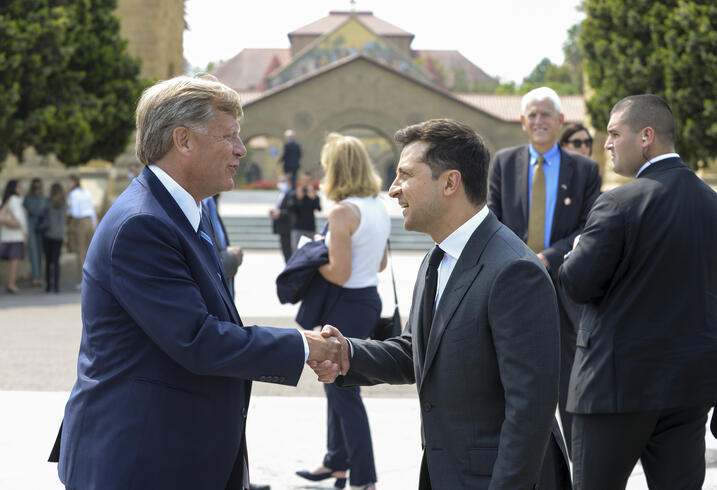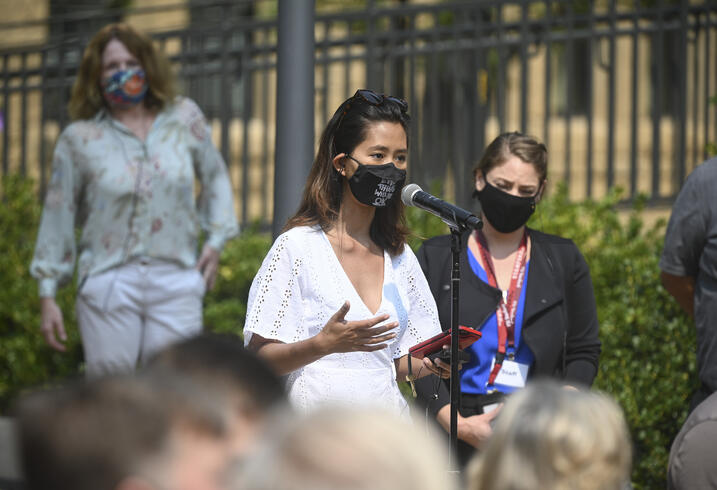Kathryn Stoner | Georgia's Democratic Struggle: The Anti-Foreign Agent Law and Uncertain European Future

Georgia's president, Salome Zourabichvili, vetoed the Parliament's contentious anti-foreign agent law, but called her act "symbolic," as the majority Georgian Dream party promised to override the veto at their next session. This talk explores Georgia's democratic aspirations within the context of the law, dissecting its potential ramifications for civil society, political freedoms, and Georgia's European integration ambitions.
Professor Kathryn Stoner, who was awarded an honorary doctorate from Iliad State University, Tbilisi, Republic of Georgia in 2016, will discuss the politics and complexities of the recent law and its implications for Georgia's future.
Kathryn Stoner is the Mosbacher Director of the Center on Democracy, Development, and the Rule of Law (CDDRL), and a Senior Fellow at CDDRL and the Center on International Security and Cooperation at FSI. From 2017 to 2021, she served as FSI's Deputy Director. She is Professor of Political Science (by courtesy) at Stanford and she teaches in the Department of Political Science, and in the Program on International Relations, as well as in the Ford Dorsey Master's in International Policy Program. She is also a Senior Fellow (by courtesy) at the Hoover Institution.
Prior to coming to Stanford in 2004, she was on the faculty at Princeton University for nine years, jointly appointed to the Department of Politics and the Princeton School for International and Public Affairs (formerly the Woodrow Wilson School). At Princeton she received the Ralph O. Glendinning Preceptorship awarded to outstanding junior faculty. She also served as a Visiting Associate Professor of Political Science at Columbia University, and an Assistant Professor of Political Science at McGill University. She has held fellowships at Harvard University as well as the Woodrow Wilson Center in Washington, DC.
In addition to many articles and book chapters on contemporary Russia, she is the author or co-editor of six books: "Transitions to Democracy: A Comparative Perspective," written and edited with Michael A. McFaul (Johns Hopkins 2013); "Autocracy and Democracy in the Post-Communist World," co-edited with Valerie Bunce and Michael A. McFaul (Cambridge, 2010); "Resisting the State: Reform and Retrenchment in Post-Soviet Russia" (Cambridge, 2006); "After the Collapse of Communism: Comparative Lessons of Transitions" (Cambridge, 2004), coedited with Michael McFaul; and "Local Heroes: The Political Economy of Russian Regional" Governance (Princeton, 1997); and "Russia Resurrected: Its Power and Purpose in a New Global Order" (Oxford University Press, 2021).
She received a BA (1988) and MA (1989) in Political Science from the University of Toronto, and a PhD in Government from Harvard University (1995). In 2016 she was awarded an honorary doctorate from Iliad State University, Tbilisi, Republic of Georgia.
Encina Hall 2nd floor William J. Perry Conference Room

![Josep Borrell [right] in discussion with Michael McFaul [left].](https://fsi9-prod.s3.us-west-1.amazonaws.com/s3fs-public/styles/707x483/public/2024-05/josep_borrell_eu_democracy_5_hero.png?itok=B_fbY_pc)



![Josep Borrell [right] in discussion with Michael McFaul [left].](https://fsi9-prod.s3.us-west-1.amazonaws.com/s3fs-public/styles/1300x1300/public/2024-05/josep_borrell_eu_democracy_5_hero.png?itok=pM6CT1oe)




![Michael McFaul [left], the director of the Freeman Spogli Institute for International Studies, speaks with Josep Borrell [right], High Representative of the European Union for Foreign Affairs and Security Policy, during an event at Stanford University on May 13, 2024.](https://fsi9-prod.s3.us-west-1.amazonaws.com/s3fs-public/styles/895x498/public/2024-05/josep_borrell_eu_democracy_hero.png?h=c4d9845d&itok=TJ5M_9hJ)
